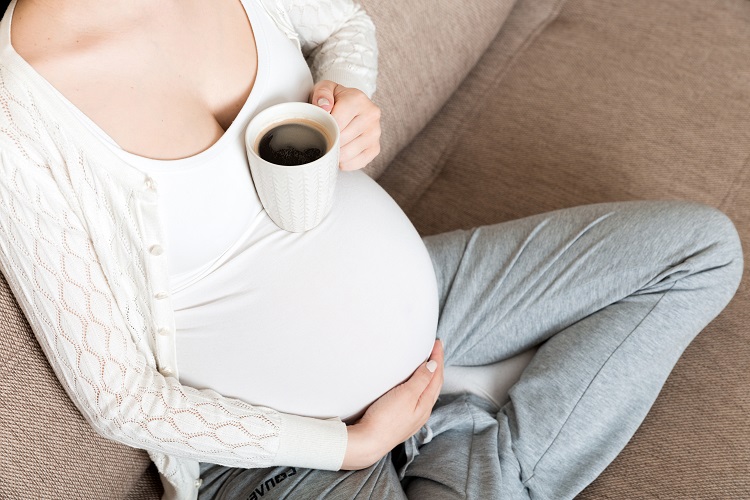
Although there is no universal recommendation to avoid caffeine, pregnant women are advised to reduce their consumption. You can, for example. According to the UK National Health ServiceThey should limit their daily consumption to 200 mg. This is equivalent to two cups of instant coffee or one and a quarter cups of filter coffee.
The University of Queensland conducted a study to determine if there is a relationship between caffeine consumption during pregnancy and children's neurodevelopment.
How dangerous is caffeine during pregnancy?
Researchers say changes in the body that occur during pregnancy may prevent caffeine from being broken down. This means the substance could cross the placenta to reach the fetus where its enzymes are not fully developed.
It has been suggested that caffeine metabolism may negatively affect fetal brain development.
Some studies have found a link between caffeine consumption and neurodevelopment. Others have not. Additionally, smoking and drinking alcohol are closely linked to coffee consumption and may confound the results. Because of the stigma associated with these factors, they may be underreported than what actually happens. This creates an additional lack of clarity.
The study suggests that these behaviors may be genetically linked to neurodevelopmental and psychiatric characteristics in mothers, traits that can then be passed on to children.
What connections have the researchers made?
The researchers removed these confounding factors using a method called Mendelian randomization (MR). This technique is able, following the discovery of genetic variants linked to coffee consumption, to determine causal relationships between caffeine consumption during pregnancy and offspring outcomes. They can be distinguished from alcohol, smoking and poor diet.

The researchers used the Norwegian Mother, Father and Child Cohort Study, a database of 46,245 genotyped mother-child pairs. The researchers used the Norwegian Mother, Father and Child Cohort Study database to examine children's early neurodevelopment and mothers' coffee consumption before pregnancy, as well as during weeks 15 and 22. The researchers performed an MR study to confirm the causality of the results.
Researchers have found evidence suggesting that caffeine is harmful to babies.
The researchers, relying solely on observational studies, found a strong correlation between maternal coffee consumption during pregnancy and children's neurodevelopmental problems. These included difficulties with communication and behavioral flexibility, hyperactive-impulsive behavior and attention difficulties, and language difficulties.
Many of these trends were eliminated by adjusting for income and education, as well as maternal alcohol and tobacco use. Effects persisted for social communication and behavioral flexibility difficulties, as well as motor difficulties, at age three, and attention and hyperactive-impulsive behavior at age five.
The researchers concluded that there was little evidence to suggest that coffee consumption during pregnancy was linked to neurodevelopmental problems. The researchers found that coffee consumption during pregnancy was associated with social communication problems at age eight. After adjusting for variables such as smoking, alcohol and education levels, there was negligible evidence that maternal coffee consumption during pregnancy was associated with neurodevelopmental problems.
A cause-and-effect link has been found between coffee consumption during pregnancy and social communication problems. Independently The researchers suggested that the correlation could be because education was not included in the analysis.
The study found that overall, there are "little evidence"Coffee consumption during pregnancy is associated with an increased risk of neurodevelopmental disorders in children. Researchers advise expectant mothers to follow the guidelines.
Psychological medicine
The Norwegian Mother, Father and Child (MoBa) cohort study, a randomized controlled trial, examined the effects of mothers' coffee consumption during pregnancy on neurodevelopmental problems in their offspring.
Published on: September 9, 2024
Doi: https://doi.org/10.1017/S0033291724002216
Authors: S. D'Urso, R. E Wootton, H. Ask, C. Brito Nunes, OA Andreassen, L. Hwang, G. Moen, DM Evans, A. Havdahl